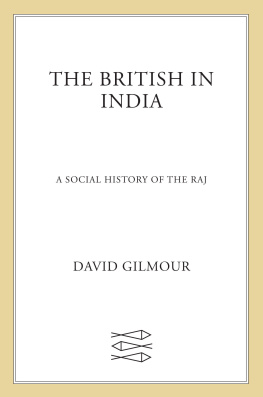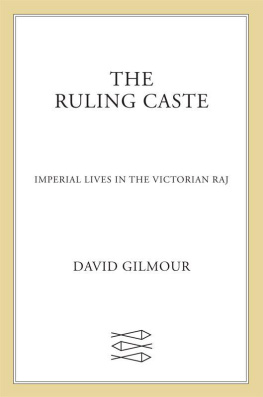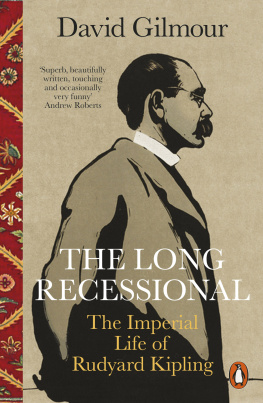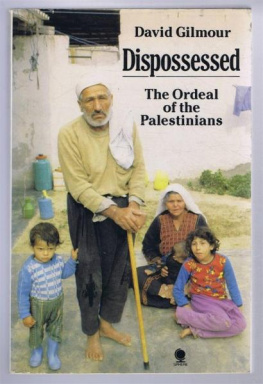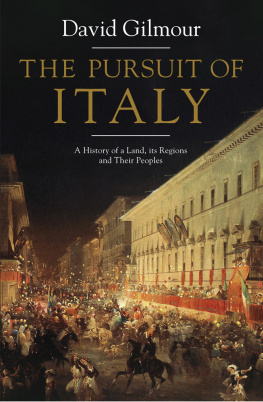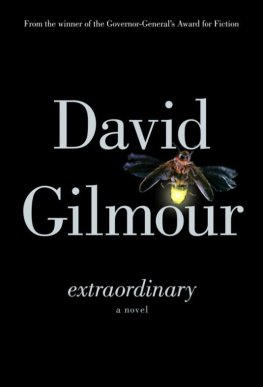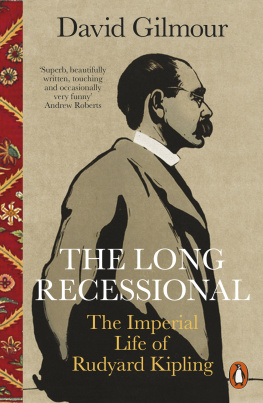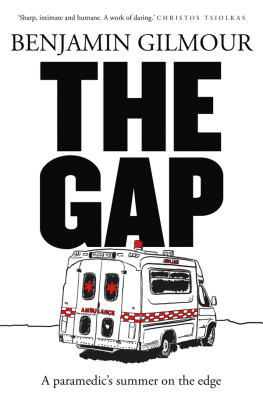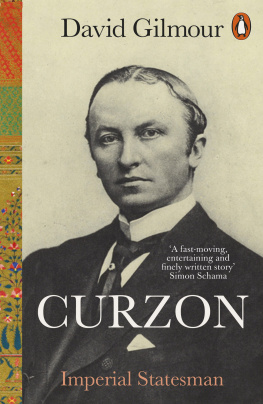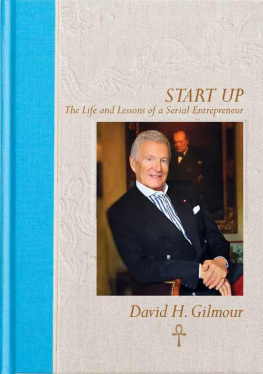David Gilmour - The British in India : Three Centuries of Ambition and Experience
Here you can read online David Gilmour - The British in India : Three Centuries of Ambition and Experience full text of the book (entire story) in english for free. Download pdf and epub, get meaning, cover and reviews about this ebook. City: Inde, Array, year: 2018, publisher: Allen Lane, genre: Politics. Description of the work, (preface) as well as reviews are available. Best literature library LitArk.com created for fans of good reading and offers a wide selection of genres:
Romance novel
Science fiction
Adventure
Detective
Science
History
Home and family
Prose
Art
Politics
Computer
Non-fiction
Religion
Business
Children
Humor
Choose a favorite category and find really read worthwhile books. Enjoy immersion in the world of imagination, feel the emotions of the characters or learn something new for yourself, make an fascinating discovery.
- Book:The British in India : Three Centuries of Ambition and Experience
- Author:
- Publisher:Allen Lane
- Genre:
- Year:2018
- City:Inde, Array
- Rating:4 / 5
- Favourites:Add to favourites
- Your mark:
- 80
- 1
- 2
- 3
- 4
- 5
The British in India : Three Centuries of Ambition and Experience: summary, description and annotation
We offer to read an annotation, description, summary or preface (depends on what the author of the book "The British in India : Three Centuries of Ambition and Experience" wrote himself). If you haven't found the necessary information about the book — write in the comments, we will try to find it.
The British in India : Three Centuries of Ambition and Experience — read online for free the complete book (whole text) full work
Below is the text of the book, divided by pages. System saving the place of the last page read, allows you to conveniently read the book "The British in India : Three Centuries of Ambition and Experience" online for free, without having to search again every time where you left off. Put a bookmark, and you can go to the page where you finished reading at any time.
Font size:
Interval:
Bookmark:
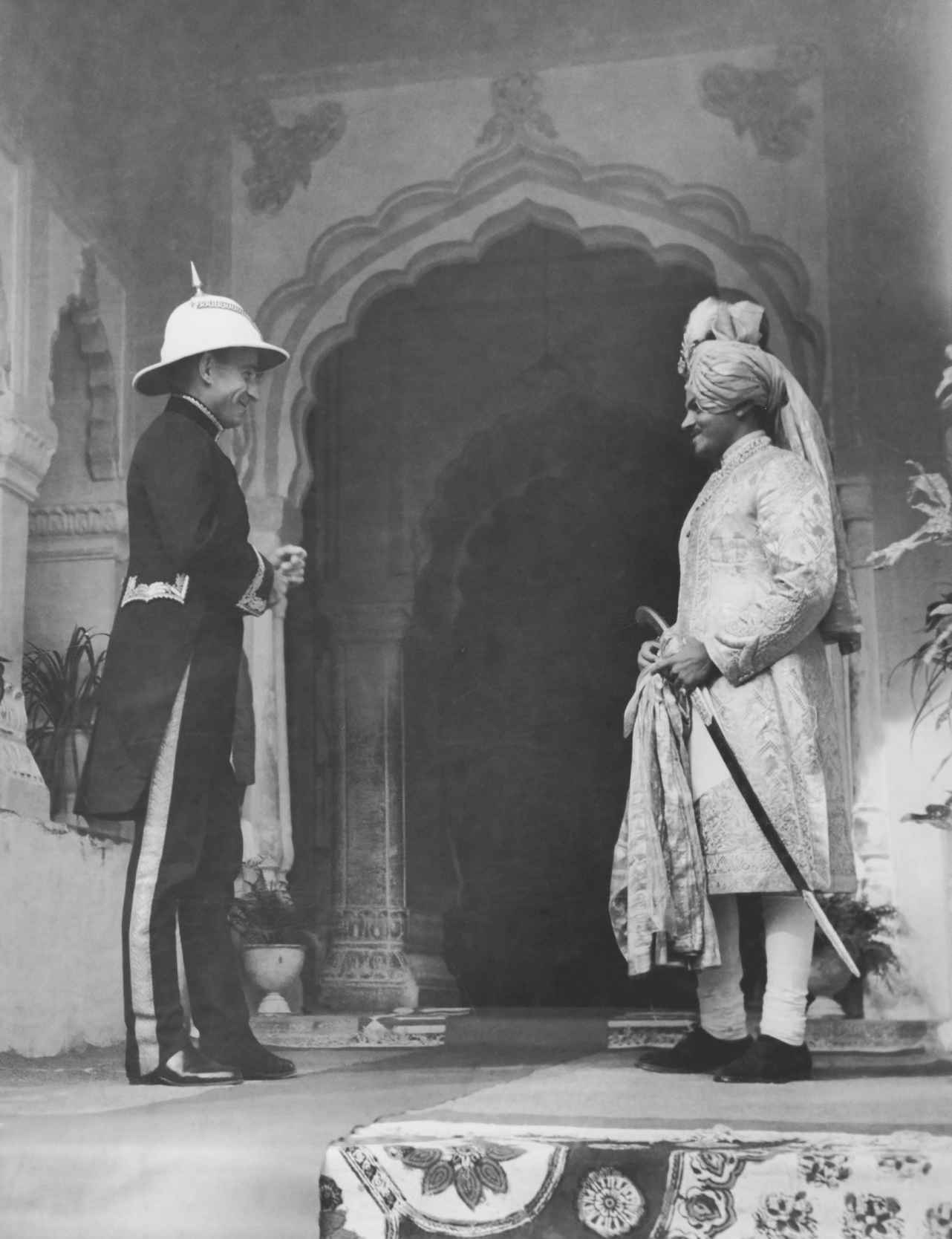
Humphrey Trevelyan, Political Agent in central India, greets Bhawani Singh, the young Maharaja of Chhatarpur, at the latters investiture in 1942.
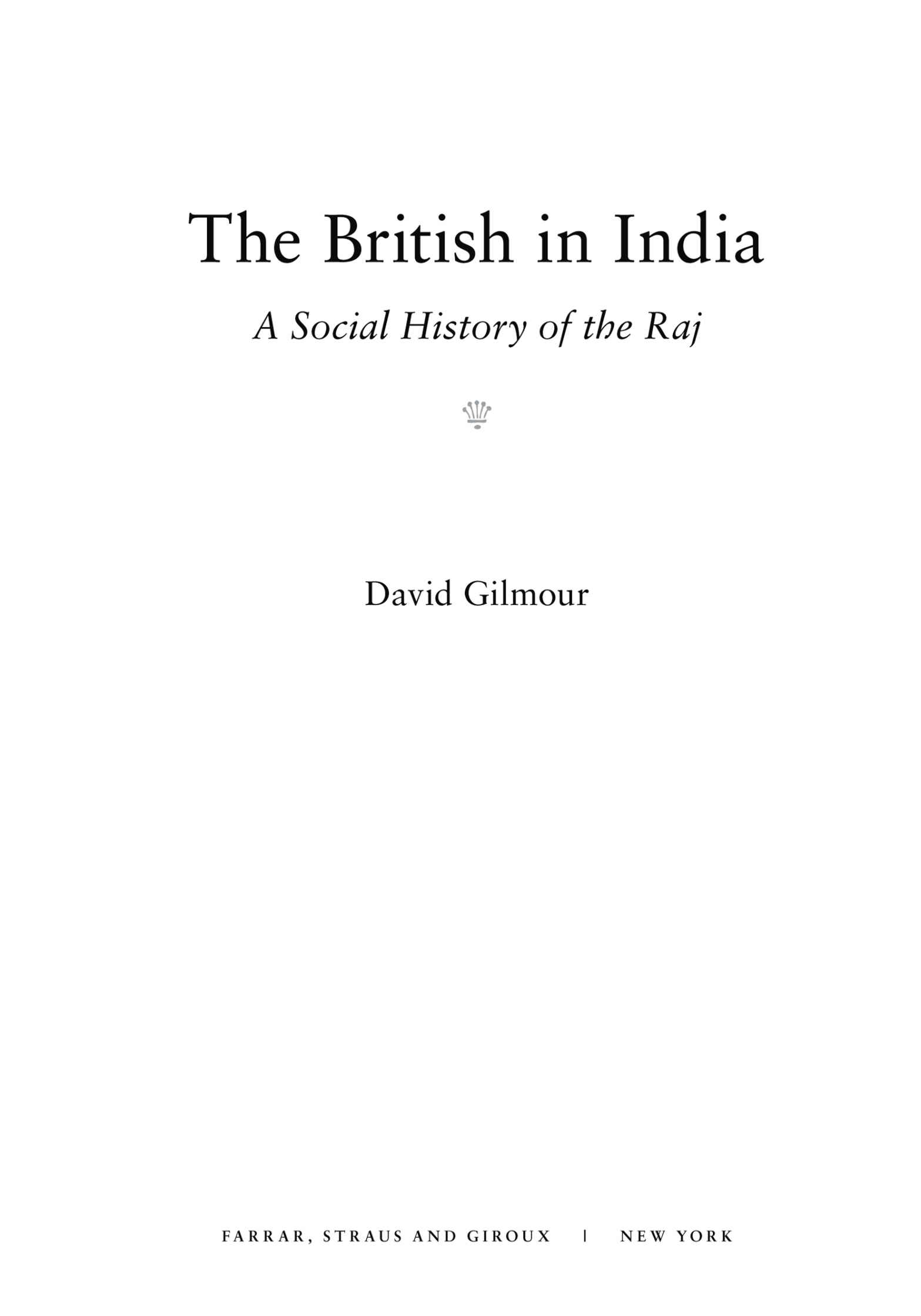
Thank you for buying this
Farrar, Straus and Giroux ebook.
To receive special offers, bonus content,
and info on new releases and other great reads,
sign up for our newsletters.


Or visit us online at
us.macmillan.com/newslettersignup
For email updates on the author, click here.
The author and publisher have provided this e-book to you for your personal use only. You may not make this e-book publicly available in any way. Copyright infringement is against the law. If you believe the copy of this e-book you are reading infringes on the authors copyright, please notify the publisher at: us.macmillanusa.com/piracy.
To Ramachandra Guha and Sujata Keshavan
and of course for Sarah
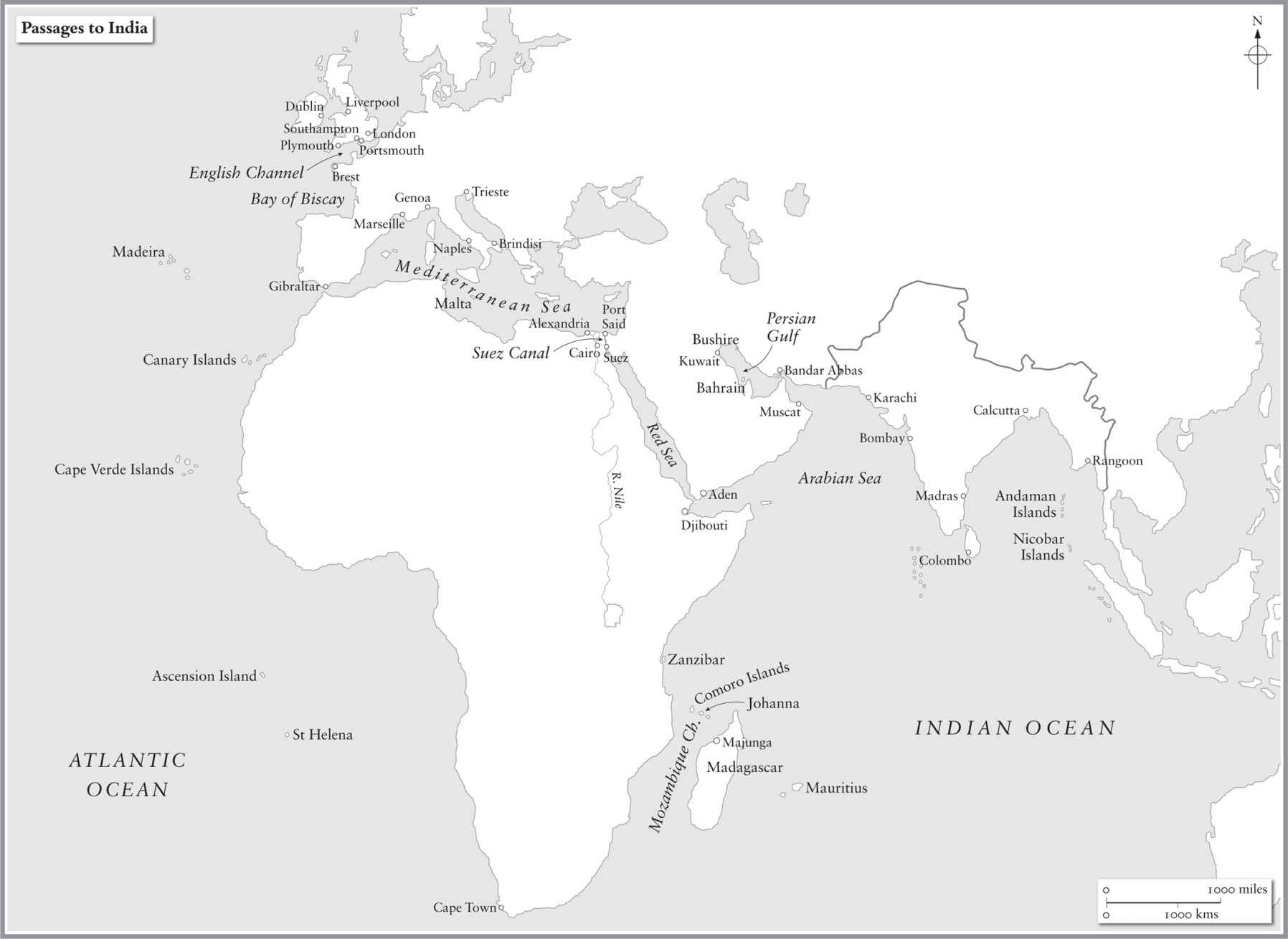
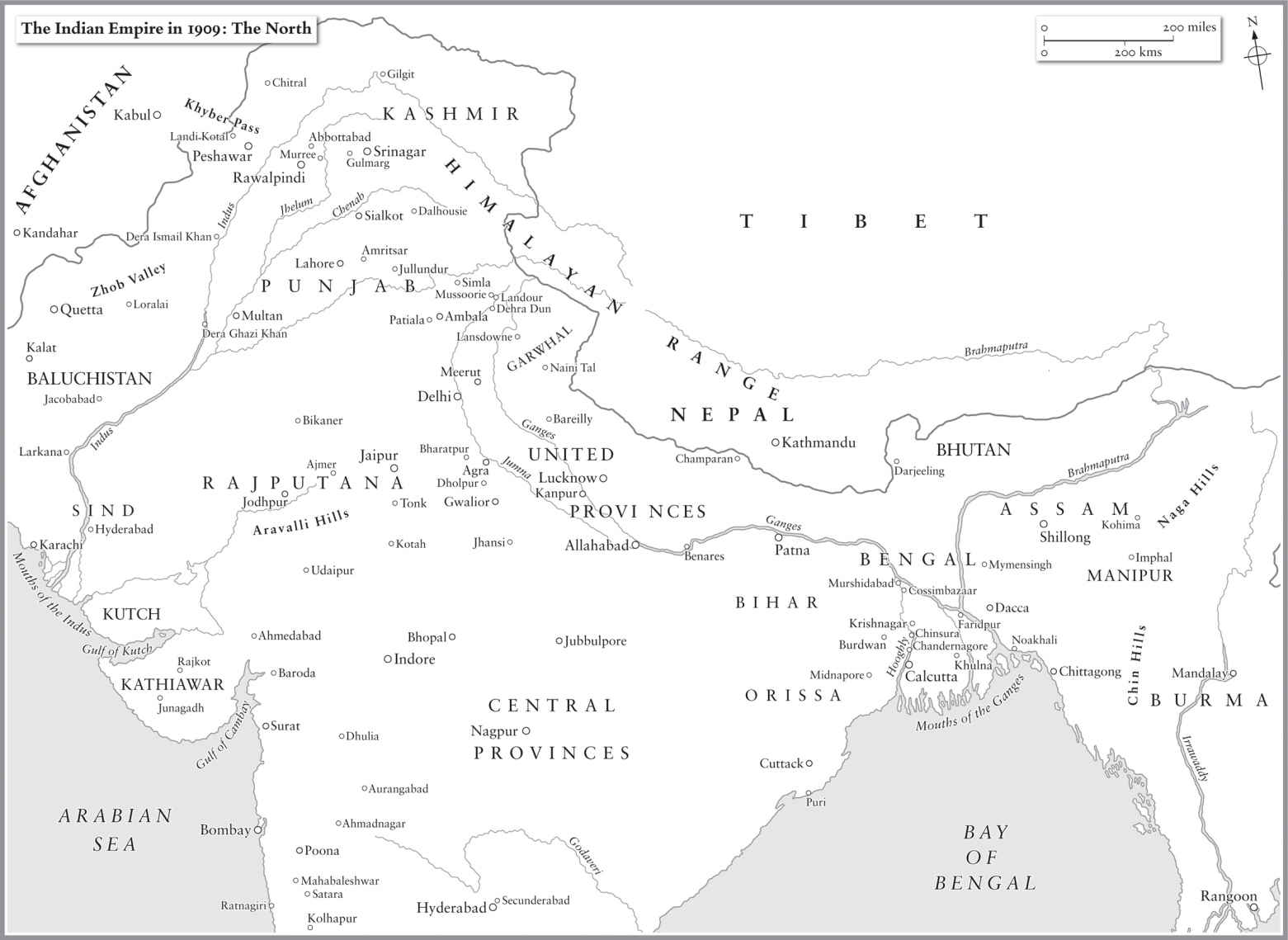
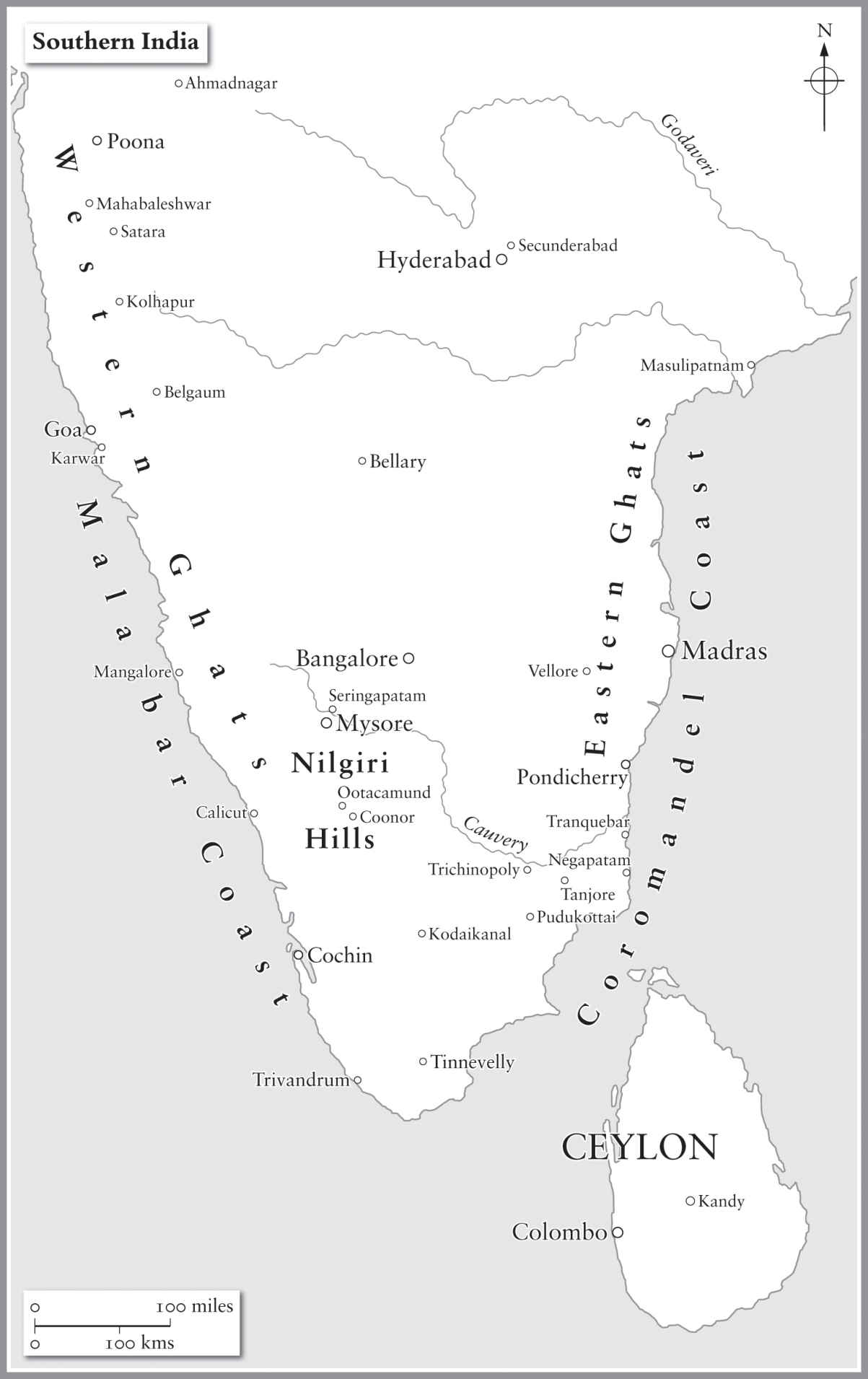
In the thirty years since I began research in the archives of British India, I have accumulated debts to many archivists and librarians as well as to individuals who have conserved the letters and diaries of their ancestors and who have generously allowed me to study them. Most of the research for this book was done in the Centre of South Asian Studies in Cambridge, the Imperial War Museum in London, the National Army Museum, the National Library of Scotland, the Nehru Memorial Library in Delhi, the Bodleian Library and Balliol and Oriel Colleges in Oxford, and above all in the old India Office Library, which moved across the Thames to become the Oriental and India Office Collections of the British Library and is now called the Asia, Pacific and African Collections. I would like to thank the staff of all these institutions. I am also grateful to the British Association for Cemeteries in South Asia (BACSA), not only for its work on the preservation of British burial grounds but also for its compilation of cemetery records, its publication of recollections of the Raj, and its excellent journal, Chowkidar , edited by Rosie Llewellyn-Jones.
Many people, some of whom are alas now dead, encouraged me to use the papers and documents in their possession. They include Denis Blakeway, Roger Bramble, Richard Calvocoressi, Anne Chisholm, the Earl of Crawford and Balcarres, Tam Dalyell, Wendy M. Davis, Richard Dawkins, Martin Fearn, Antoinette Galbraith, Patsy Grigg, Francis Hamilton, the Marquess of Lansdowne, Lady Alexandra Metcalfe, Sara Morrison, Nigel Nicolson, Jean Phillips, the Marquess of Salisbury, Helen Shaw Stewart, Xan Smiley, Bridget Swithinbank, Anne Tatham, Judy Urquhart, Audrey Verity and Ben Watson. My thanks to them all.
Many other individuals, in Britain and in India, have helped me in diverse ways, and for their assistance I would like to thank Ram Advani, Antony Barnes, Richard Bingle, David Blake, Mark Brayne, Margaret Cassidy, Alec Cobbe, Charles and Monika Correa, Sunanda and Sumita Datta-Ray, Keshav Desiraju, Patric Dickinson, Sir Stephen Egerton, Lord Egremont, Lawrence Fleming, Alan Gordon Walker, Major Humphrey Gore, Sir Max Hastings, John Hemming, Caroline Jackson, Subinda Kaur, Kate Kee (Trevelyan), Susanna Kerr, Sujata Keshavan, Sunil Khilnani, Rosie Llewellyn-Jones, Arvind Mehrotra, Nandini Mehta, David Morton Jack, Brigitte Nix, V. C. Pande, Jane Pomeroy, Phillida Purvis, Shashi Sen, Geetanjali Shree, Anne Stephens, Richard Symonds, Gina Thomas, Lord (Hugh) Thomas, Riccardo Tomacelli, Deirdre Toomey, Sriram Venkatakrishnan, Charles Vyvyan, and Tim and Erica Watson.
The historians Judith Brown, Ramachandra Guha and Srinath Raghavan have each read the entire manuscript, and so have my wife, Sarah, and my son, Alexander. I am grateful to them all first for the undertaking and subsequently for their wisdom and advice.
Gillon Aitken, a child of the Raj, was my agent for many years until his death in 2016. He gave me much encouragement for this book, as did his partner in the firm, the wise and supportive Clare Alexander. Once again I have been very fortunate with publishers on both sides of the Atlantic. At Penguin the incomparable Stuart Proffitt has been an inspirational editor, Ben Sinyor and Richard Duguid have overseen the publication process with cheerful efficiency, and Sarah Day has been a copy-editor both intuitive and precise. At Farrar, Straus and Giroux the book was accepted by the wonderful Elisabeth Sifton, my editor for many years, and was subsequently handled with enthusiasm and skill by Laird Gallagher. My thanks to all.
As usual I have relied heavily on Sarah and my children for their support during a book which has taken an inordinately long time to research and write. The decision of three of my children to have babies during the month scheduled for the final chapter may have delayed the book a little, but it added to the gaiety of life and helped preserve the sanity of the author.
A few years ago the Scottish comedian Billy Connolly was surprised to learn that he had Indian ancestors. Appearing on the BBC television programme Who Do You Think You Are? , he was hoping to find out which country his great-grandmother Florence had been born in, Ireland or Scotland. In fact, as he soon discovered, she was born in India, in Bangalore, the daughter of Daniel Doyle, a labourer from County Wicklow who had enlisted in the British Army as a youth and was sent to India in 1856. For a few years in the south her fathers career had prospered. From a rifle regiment he was transferred to the Royal Horse Artillery, a more prestigious unit, where he received three good conduct medals and was promoted from gunner to corporal. Yet that, alas, was the high point of his career. To the amusement of his irreverent great-great-grandson, Daniels name was soon appearing repeatedly in the Regimental Defaulters Book; his misdemeanours were unspecified but seem to have consisted chiefly of violence and drunkenness. Eventually he was court-martialled and reduced to the ranks, and in 1866 he was admitted to hospital in Bangalore suffering from diarrhoea, dysentery, alcoholism and syphilis.
Salvation for Doyle came three years later with his marriage, after which his army report rated him as regular, good and temperate. The agent of this remarkable transformation was his wife, Margaret, the daughter of John OBrien, another Irish soldier in India, a private in the Madras Fusiliers whose regiment had been sent north to help counter the Rebellion of 1857.
As Connollys story suggests, much of Britains relationship with India, especially at a personal and popular level, has very quickly been forgotten. One cannot help wondering why his maternal grandmother, to whom he was very close, never told him that her own grandparents had lived in India and that her mother had been born in Bangalore; if she had been ashamed to admit her Indian ancestry, she could have left that bit out. The story also indicates how much of the British-Indian relationship, again at a personal level, was accidental. Most British people did not go to India to conquer it, govern it or amass a large fortune there. When Daniel Doyle enlisted in the 3rd Battalion of the 60th Rifles, he did not know that he would be sent to India and spend half his active life there as a soldier who would never be called upon to fight a battle. Like private soldiers, many British women and children lived in India by accident, without having chosen to do so; chance or unexpected circumstances had brought them there. If we look merely at Connollys own profession, the theatrical, we find a good number of future actors living fortuitously on the Subcontinent: a list of those who were born in India, or went to school or spent parts of their youth there, would include Vivien Leigh, Merle Oberon, Norman Wisdom, Lindsay Anderson, Spike Milligan, Tom Stoppard, Felicity Kendal and Joanna Lumley, many of whom will appear later in this book. If we examine an even smaller profession, that of writers, we find that Thackeray, Kipling, Saki, Orwell (and Orwells second wife, Sonya) were all born in India.
Next pageFont size:
Interval:
Bookmark:
Similar books «The British in India : Three Centuries of Ambition and Experience»
Look at similar books to The British in India : Three Centuries of Ambition and Experience. We have selected literature similar in name and meaning in the hope of providing readers with more options to find new, interesting, not yet read works.
Discussion, reviews of the book The British in India : Three Centuries of Ambition and Experience and just readers' own opinions. Leave your comments, write what you think about the work, its meaning or the main characters. Specify what exactly you liked and what you didn't like, and why you think so.

